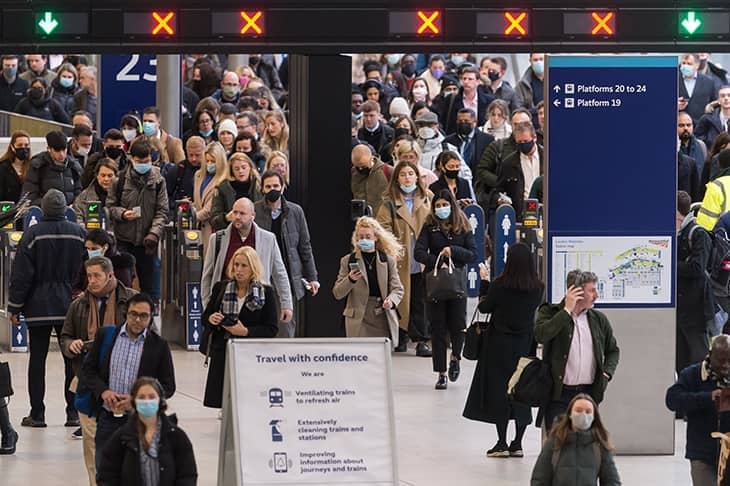Shortly after Covid emerged, our civil liberties were suspended. The government took control of when and for how long we could leave our houses, and children’s right to classroom education was abolished. The idea was that lockdown would prevent catastrophic loss of life and the collapse of the NHS. But when that was no longer a serious prospect, the justification for restrictions vanished. The big question was whether governments would hold on to the emergency powers anyway — with identity cards, testing regimes and ‘no-jab, no-job’ policies.
In Britain, the answer is — thankfully — now clear. We have become, along with Denmark, the first country to draw a line underneath the pandemic and return government to its proper relationship with the public. In abolishing all domestic restrictions, including the law obliging those with Covid to self-isolate, Boris Johnson has made a bold and brave decision. After two years and some calamitous missteps, he now looks to have found his feet.
Many say this decision is reckless or premature, but that is to ignore what the Prime Minister said in his press conference this week — and to underestimate the public’s good sense. He did not tell anyone to behave in a carefree manner, just acknowledged that we are now trusted to take personal responsibility. Johnson’s critics seem un-able to grasp this concept. They assume that people only change their behaviour when ordered to by state decree, but, like Sage’s models, that has proven untrue.
In abolishing all domestic restrictions, Boris Johnson has made a bold and brave decision
At the start of the pandemic in March 2020, people limited their social contacts of their own volition. By the time the first lockdown was imposed, public transport journeys in London, for example, were already down to 15 per cent of their normal levels.







Comments
Join the debate for just £1 a month
Be part of the conversation with other Spectator readers by getting your first three months for £3.
UNLOCK ACCESS Just £1 a monthAlready a subscriber? Log in